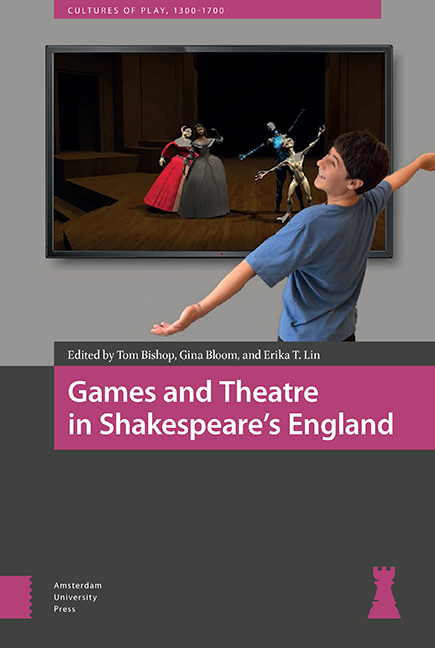11 - Shakespeare, Game, and Play in Digital Pedagogical Shakespeare Games
Published online by Cambridge University Press: 21 October 2021
Summary
Abstract
Shakespeare games are emerging as legitimate objects of study and pedagogy, but a survey of such games reveals that the marriage between “Shakespeare” and “game” is conceptually problematic, offering relatively narrow understandings of what a play by Shakespeare might be. We briefly identify two broad trends in digital pedagogical Shakespeare games before discussing how their reliance on the act of “play” and their favoring of Shakespeare as a textual ontology ignores the complexity of theatrical performance. We identify three overlooked complexities, the first giving rise to the other two: the audience's contribution to theatre’s ontology, the different kinds of work that actors and spectators undertake in performance, and the primacy of collaborative ontogenesis in theatre over artifactual ontology.
Keywords: Shakespeare; game design; digital pedagogy; ontology; ontogenesis
The Game's Afoot
Gina Bloom has recently observed that since 2008, “the field of Shakespeare gaming has exploded.” Shakespeare games are emerging as legitimate objects of study in our field at a time when the broader field of game studies has firmly established game design as a legitimate form of pedagogy. Although popular Shakespeare games—even those with pedagogical goals—still largely aim merely to capitalize on the cultural currency of the Bard, Shakespeare scholars are increasingly thinking of games—in particular digital games—as opportunities to engage pedagogically with students and theatre audiences about Shakespeare's works for the theatre. To date, we are aware of two broad trends in digital pedagogical Shakespeare games designed by Shakespeare scholars, each taking a distinct approach to scaffolding deep engagements with Shakespeare's play-texts. The first—which we think of as gamified textual analyses—aims to develop students’ analytical skills by setting completion conditions that can only be achieved through detailed engagement with the language, plot, characters, and/or themes of Shakespeare's plays; E. B. Hunter's Something Wicked and Katherine Acheson et al.'s Who Killed Romeo and Juliet? take this approach. The second category—staging games, pioneered in digital form by Larry Friedlander in 1991 with TheatreGame—positions players as theatre-makers in variations on sandbox games that simulate the decision-making processes involved in staging a play; Staging Shakespeare, Places, Please!: Hamlet Edition, and Play the Knave are all examples.
- Type
- Chapter
- Information
- Games and Theatre in Shakespeare's England , pp. 275 - 302Publisher: Amsterdam University PressPrint publication year: 2021



